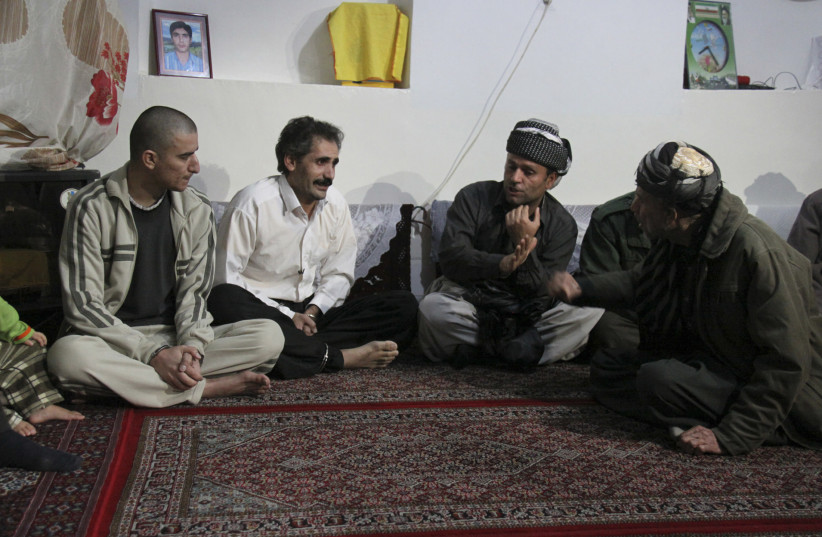Iran claimed on Wednesday to present new details from Iran’s Intelligence Ministry regarding the “arrest and equipment of the identified terrorist team of the Zionist regime.” The news appears to follow reports several days ago in which Iran claimed to have arrested members of a sabotage team sent from Israel.
The earlier claim by the Iranian regime said, according to Iran International, that "this network's members were in contact with (Israel's) Mossad spy agency through a neighboring country and entered Iran from (Iraq's) Kurdistan region with advanced equipment and strong explosives.” The new report was published by Fars News which is considered close to the IRGC, it includes an official statement.
The statement Wednesday says that after the announcement that a “terrorist team affiliated with the Zionist regime,” new information was available. Iran uses the term “Zionist” apparently interchangeably with “Israel” and accusations that these are agents of Israel. Iran says that the team was sent to blow up areas of the “sensitive defense industry center of the country.” Iran’s defense industry, including its drone development industry, has suffered from reported attacks in recent months. Six days ago foreign reports said that Israel had interrogated a senior IRGC member inside Iran.
Iran says that Israel “had designed the most complex combined methods to identify the geography of the target and destroy it extensively.” Iran pointed to an outlawed terrorist group called “Kumle” which sounds like the Kurdish group “Komala.” In April Iran also said it arrested a “terrorist” cell linked with this Kurdish group.
Iran claimed that Abdullah Mehtadi is the leader of the group. He is known as the leader of the Komala party of Iranian Kurdistan. It appears this is an Iranian regime attempt to slander him. The report says that he “introduced [the group] to the Mossad officers. It is worth noting that the mercenary group of Komleh [sic] was discovered and documented for the Zionist regime in the past, but this relationship has become quite close and semi-public in recent years to the point that conducting proxy operations on behalf of the Zionist regime has become a known function of that mercenary group.”

Iran appears to be using the claims of “Zionist” infiltration as a way to discredit the Kurdish group. Iran says the its intelligence agents had arrested the “terrorists.” Iran claimed that the same intelligence network of the “anonymous soldiers of Imam Zaman” had recently busted a trafficking network that took Iranian women to the Kurdish region of Iraq. It is not clear if the two counter-intel operations are linked. Iran says that the recent arrests were aimed at the “terrorists” who keep in contact with “Mossad operational officers.” The Fars News report, which includes the government statement, says that “in the coming days, the Home Affairs Ministry will announce the number and identity of the arrested operatives as well as the related elements residing abroad after some information will be provided.”
Iran says that the “terrorists” and their contacts entered the country from the Kurdistan region of Iraq and that the men were disguised using the outfit of “kolbars” or traditional Kurdish men who bring goods across the border. Kolbars are often killed by Iran, accused of being smugglers. However, the network of Kolbars consists of men who do backbreaking difficult work to move goods across the border in undocumented methods.
According to the reports equipment, including weapons and “eight powerful bombs and eight small bombs” was smuggled to Iran. The equipment included bombs to self-destruct equipment, Iran says. Handguns and phones were also ground. “Special technical tools for disrupting the control systems of the target environment and also for remote explosion,” were found. Make-up, wigs and other tools for “changing fingerprints” were discovered, Iran says. There were also money and fake identity documents.
Iran claims it has thwarted a major “terrorist” operation and this resulted in a “big failure” for Iran’s enemies. Iran says the operation will not go unanswered.
